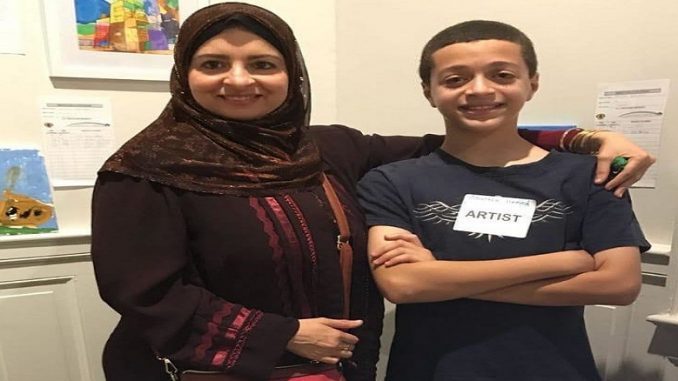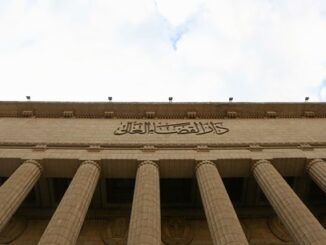
Under pressure from the Trump administration, Egypt released Reem Desouky, an art teacher from who was jailed over a Facebook page critical of Sisi.
A Pennsylvania teacher, held in an Egyptian prison for nearly 10 months without trial and on flimsy charges, was released Sunday and returned to the United States with her teenage son, human rights advocates said on Monday.
Reem Mohamed Desouky, a dual U.S.-Egyptian citizen, was arrested last July after arriving in Cairo from Washington with her 13-year-old son, Moustafa. Security officials detained her at the airport, took their phones and questioned them for hours. Desouky was then jailed. Her alleged crime was criticizing Egypt’s government on Facebook.
Desouky was among at least a half-dozen American citizens being held in Egypt’s crowded prisons on politically motivated grounds. Her release followed U.S. government pressure on the Egyptian government and came a day after Shady Habash, a video director, was found dead in Cairo’s notorious Tora prison after spending more than two years there for a song that mocked Sisi.
Upon her release, Desouky, a teacher of applied arts, was reunited with her son, who had refused to leave the country without his mother. The pair arrived at their home in Lancaster, Pa., late Sunday, said Mohamed Soltan, development director at the Freedom Initiative, a rights group that worked to free Desouky and brought her case to the attention of senior U.S. officials and lawmakers.
“This is a big win,” said Soltan. “It’s been almost a year since she’s been in prison.”
Desouky’s detainment was one of the numerous examples of how Sisi, one of the Trump administration’s closest allies, has been silencing critics. The regime, considered the most authoritarian in Egypt’s modern history, has jailed activists, poets, artists — anyone perceived to be blemishing the image of Sisi and Egypt.
In the case of Desouky, authorities charged her with administering social media accounts deemed critical of the government, but did not specify which posts were offensive. One Facebook page from which Desouky shared posts, according to her supporters, was a forum mostly about social and economic conditions in Egypt.
Her release, said Soltan, may have been motivated in part by the death of Mustafa Kassem, a 54-year-old Egyptian American national who died in January after being held in prison on flimsy charges for six years with poor medical care. His death touched off a rare period of tension between Sissi and the Trump administration, which has remained largely silent, at least in public, about the regime’s growing abuses.
“The U.S. government has been engaged on her case at a very senior level,” said Soltan, referring to Desouky. “That pressure was upped after Mustafa Kassem’s death.”
As many as 114,000 inmates, including a larger number of political prisoners, are being held in Egypt’s prison system, which the U.N. human rights office says is overcrowded, unsanitary and suffering from a lack of resources, and where “detainees are routinely denied access to adequate medical care and treatment.” Human rights advocates and relatives are increasingly concerned that the novel coronavirus could spread in Egypt’s prisons.
Scores of prisoners have gone on hunger strike, including Mohamed Amashah, a 24-year-old Egyptian American from Jersey City who was arrested in April 2019 for holding up a sign in downtown Cairo that read “Freedom for all prisoners.”
Desouky’s brother, who was arrested when he came to visit her, remains in prison, said Soltan, adding that he hopes her release will prompt the U.S. government to apply more pressure on the Sissi government to free more of those unjustly imprisoned.
“We hope the momentum will build and lead to more political prisoners released,” said Soltan.



